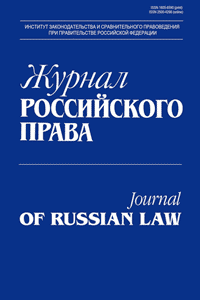H.-G. Gadamer has established the foundations of philosophical hermeneutics, in which it is important, a preliminary understanding of the interpreter and the tradition. R. Dworkin harshly criticized the idea that the individual constitutional rights may be limited to preserve the rights and demands of society as a whole. In addition, assuming that there should be judicial discretion, even in difficult cases, the author criticized the judge’s image of an ideal that can detect only one correct answer for specific cases. For neoconstitutsionalists R. Alexy and M. Borowski, comprehension is not a procedure that would have resulted in all or in any case to a single and unequivocal results, however, according to M. Borowski, it’s not a lack of specific comprehension of the concept, and quality that characterizes the whole process deciding regulatory issues. The thesis of the only correct interpretation has problems, as indicated by the positivists and neoconstitutsionalists. Indeed, it is impossible that it was the only right decision in each case, in particular in the constitutional area. Taking into account, the open, uncertain and fragmented nature of constitution and characteristics of the social reality in which it is used, it is possible to create a variety of correct answers for the solution of practical problems. Through the interpretation (application) of the constitution implies that it is possible to determine the outcome in a rational and controlled process, approve the result with convincing arguments and thus create certainty and predictability.
Methodology, interpretation, constitutional law, methods of interpretation, legal certainty, the only correct interpretation of the constitution, integrative method, topical method, concretism, philosophical hermeneutics, neoconstitutsionalizm.
1. Bonavides P. Konstitutsionnoe pravo. 11-e izd. San-Paulu, 2001.
2. Gadamer G.-G. Istina i Metod: fundamental´nye nabroski germenevticheskoy filosofii. Petropolis, 1997.
3. Gerkengoff Zh. B. Kak primenyat´ pravo. Rio-de-Zhaneyro, 1986.
4. Gesse K. Elementy konstitutsionnogo prava Federativnoy Respubliki Germaniya. Portu-Alegri, 1998.
5. Dvorkin R. O pravakh vser´ez. San-Paulu, 2002.
6. Dinits M. Kh. Grazhdanskoe pravo Brazilii. V. 1. San-Paulu, 1989.
7. Kal´ekhon F. B. Otrazhenie konstitutsii na yuridicheskom zakonodatel´stve. San-Paulu, 2014.
8. Karval´u M. Kh. P. de. Germenevtika konstitutsional´naya: spetsificheskie metody i printsipy tolkovaniya. Florianopolis, 2008.
9. Karl L. Metodologiya pravovedeniya. 2-e izd. Lissabon, 1983.
10. Kel´zen G. Chistaya teoriya prava. San-Paulu, 2006.
11. Myuller F. Rech´ o yuridicheskom metode. Parizh, 1996.
12. Savin´i F. K. fon. Sistema segodnyashnego rimskogo prava. V. I. 1840.
13. Sil´va V. A. da. Tolkovanie konstitutsii i metodologicheskiy sinkretizm. San-Paulu, 2005.
14. Khabermas Yu. Pravo i demokratiya: mezhdu dostovernost´yu i deystvitel´nost´yu. V. I. Riode-Zhaneyro, 1997.
15. Khart G. L. A. Kontseptsiya prava. Lissabon, 1961.
16. Kheberle P. Konstitutsionnaya germenevtika. Portu-Alegri, 1997.








